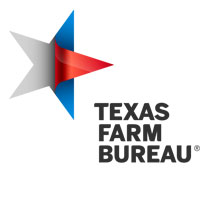TFB stresses need for eminent domain reform before senate committee
(AUSTIN, Texas)—Texas landowners often face an uphill battle in eminent domain cases, but SB 421 by Sen. Lois Kolkhorst aims to create a more fair, transparent and accountable process.
Texas Farm Bureau Secretary-Treasurer Scott Frazier testified in support of SB 421 at a hearing of the Senate State Affairs Committee today.
The bill would mandate that all easement agreements used for pipelines or electric transmission lines include minimum protections for landowners.
“Requiring standard easement terms ensures landowners get basic protections for the use of their property. Easement terms are held as leverage over the landowners,” Frazier said. “I can make headway with the company negotiating important protections into the company’s easement form, but if we can’t agree on fair compensation, I risk losing those easement terms. If I’m taken to court, the easement is written exclusively by the company and filed with the condemnation petition. I have to accept whatever terms they choose to give me.”
The bill also outlines increased transparency between the condemning private entity and the landowners.
Companies that use eminent domain would be required, in certain circumstances, to hold public meetings within the counties they would be asserting eminent domain. These meetings must be held before the company can acquire any property.
“This is required of public entities in Texas,” Frazier said. “Let’s hold private, for-profit corporations to the same standard.”
The bill also creates a disincentive for entities that make a low initial offer.
“We see this as a mechanism to deter ridiculous offers and get landowners fair compensation without having to hire an attorney and be taken to court,” Frazier said.
Under current law, the only requirement for the initial offer is that it be in writing.
“That’s it. They’re not required to provide any documentation substantiating the offer provides the compensation required by the Constitution,” he said. “This allows bad actors to take advantage of landowners.”
Texas Farm Bureau and other agricultural organizations and landowner groups support the legislation, because it seeks a better solution for private property owners, while also ensuring public needs are met.
“The avenue for information under state law isn’t meaningful. At best, it’s vague,” Frazier said. “These are all reasonable changes that won’t impede infrastructure development but will clean up an abused process being jeopardized by bad actors. The continued use of eminent domain as a tool for development needs to be strengthened by these practical improvements.”


